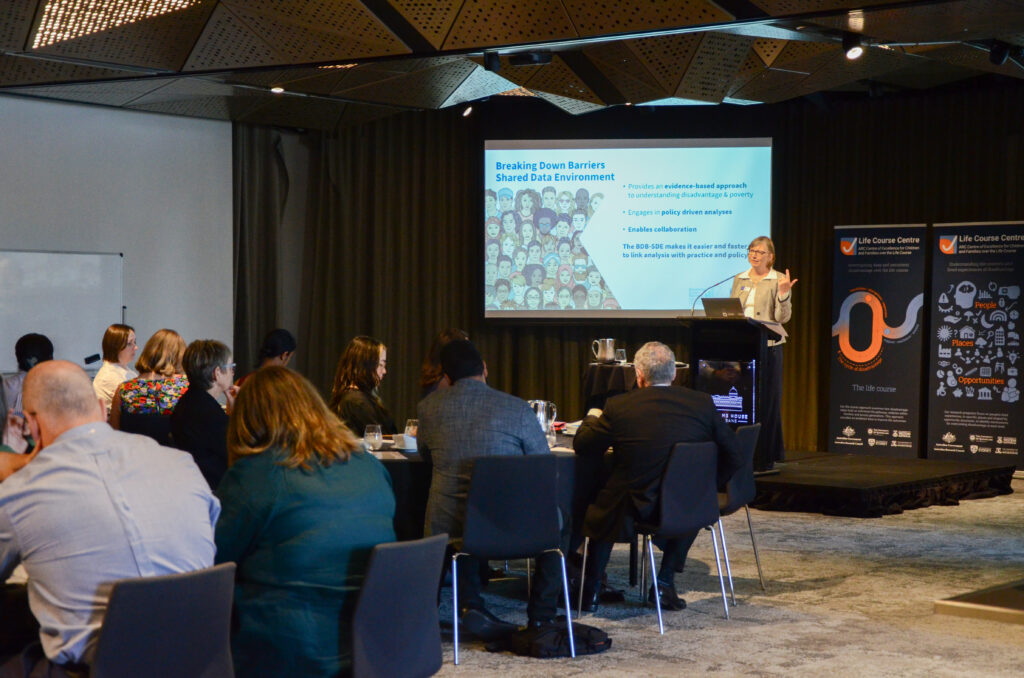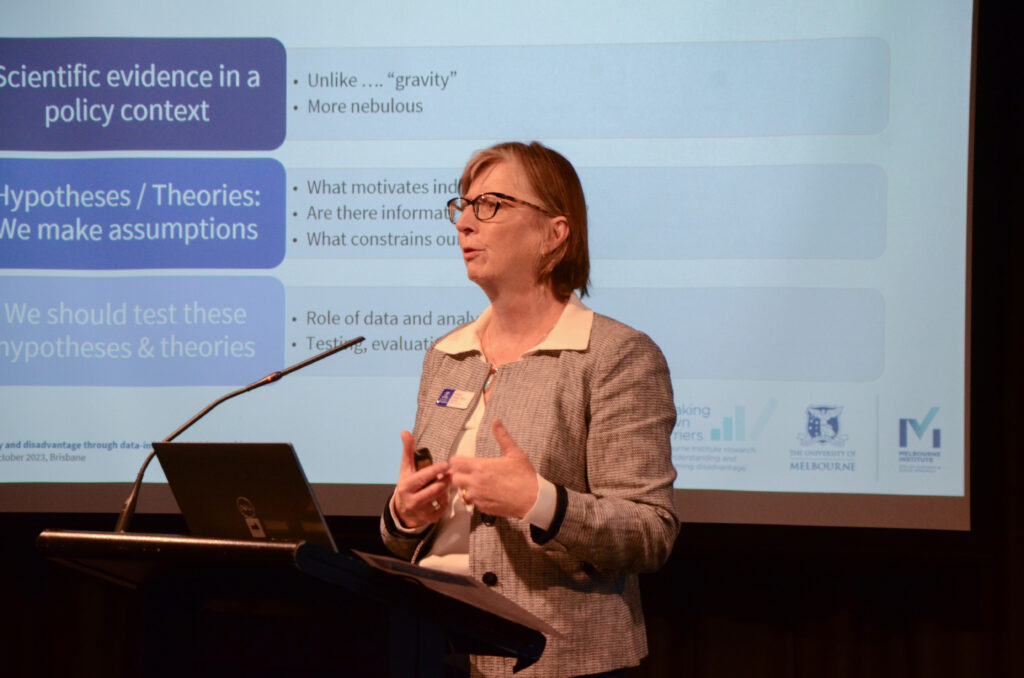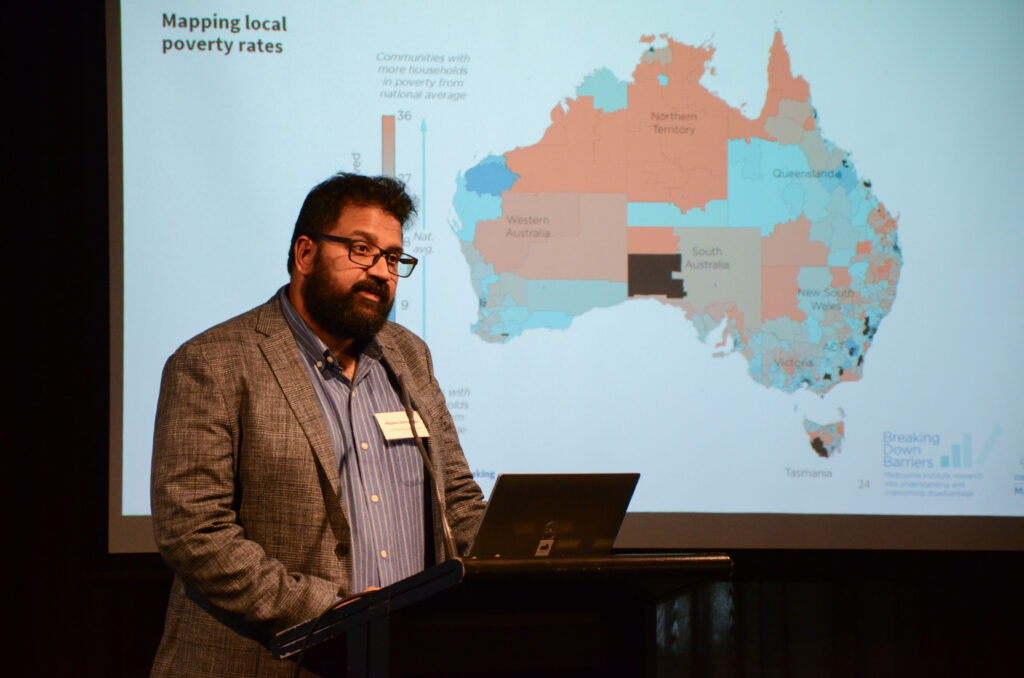Building the shared data environment to address key issues of poverty and disadvantage – from communities, housing and food insecurity to youth transitions, education and opportunities – was the focus of a highly collaborative Anti-Poverty Week roundtable event held in Brisbane in October.

Jointly hosted by the Life Course Centre and the Breaking Down Barriers project at the Melbourne Institute: Applied Economic & Social Research, the roundtable brought together researchers, policy analysts and service providers to explore the potential for new data and research collaborations.
There were key presentations on data tools and research projects, with a strong emphasis on open discussion, networking, and input from attendees. “We really wanted to hear from people about the ways we can work together to build the shared data environment to better understand the drivers of, and solutions to, poverty and disadvantage,” said Professor A. Abigail Payne, Director, Melbourne Institute; Lead, Breaking Down Barriers; and Chief Investigator, Life Course Centre.
“There was a lot of valuable input and discussions throughout the day, which highlighted the importance of collaboration and co-design in leveraging the power of data to inform and shape evidence-based, place-based policy and practice, and we want to keep those conversations going.”

One of the key data tools showcased was the Breaking Down Barriers Community Profiles, a web-based data visualisation tool that tracks poverty at the community level.

“Poverty is a whole-of-Australia issue but at a local level it is much more varied. This interactive tool generates community profiles that give a more accurate understanding of poverty across Australia,” said Dr Rajeev Samarage, Senior Research Fellow, Data Analytics and Program Coordinator, Melbourne Institute.
Another Melbourne Institute data tool showcased was the YouthView Dashboards, which provide interactive overviews and visualisations of youth disadvantage, including the crucial transition from high school to employment, in communities across Australia. “This tool identifies the communities facing the biggest challenges to guide place-based interventions and opportunities for young people,” said Dr Steeve Marchand, Research Fellow, Melbourne Institute and Life Course Centre.
Both the Breaking Down Barriers Community Profiles and YouthView Dashboards were presented to the roundtable for feedback and input on how they could be used and further enhanced for policy and practice tackling poverty and disadvantage.
Life Course Centre researchers also presented on a range of topics at the Anti-Poverty Week roundtable event, including Dr Azhar Potia on educational pathways of First Nations students, Dr Sangeetha Chandrashekeran (in conjunction with Gavin Duffy, Manager Policy and Research at St Vincent de Paul Victoria) on the significance of place and community in social housing, and Professor Cameron Parsell on staying in and leaving supportive housing.
For more information and collaboration opportunities, visit Breaking Down Barriers and Life Course Centre